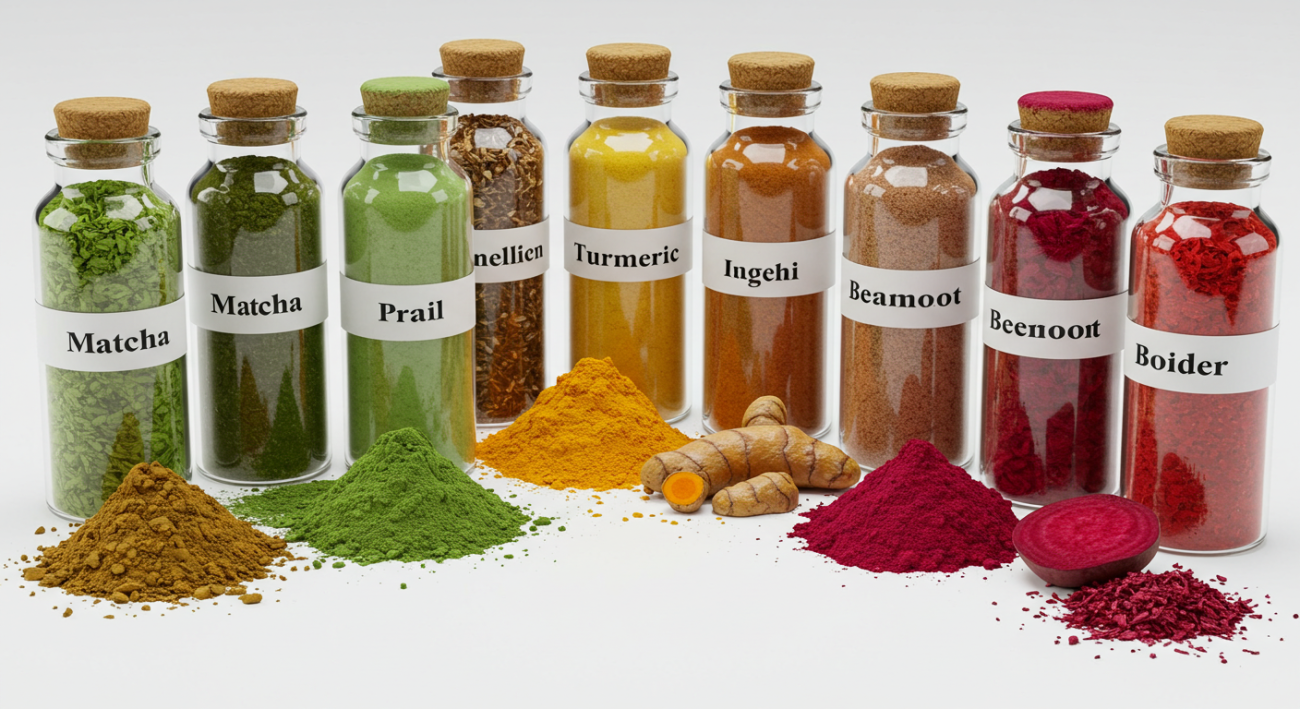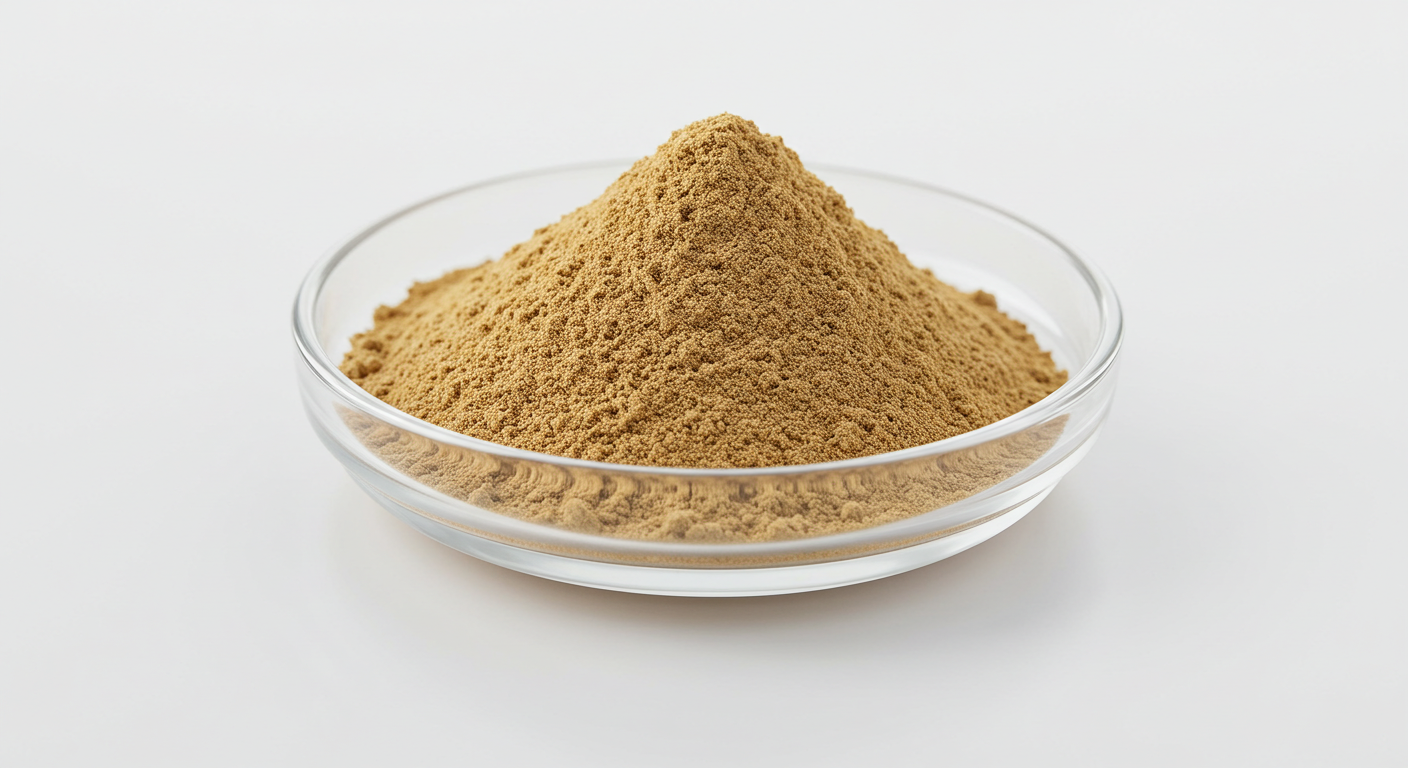What are the Ways to Verify the Authenticity of an Extract?
Your suspicion is not only justified but profoundly important. Given the increasing number of counterfeit ingredients and damaged reputations of companies in the herbal market, verifying the authenticity of an extract is vital for safeguarding the product, brand image, and customer trust. This guide will help you navigate the issues surrounding trust, and how do I know if the plant extract I’m purchasing is authentic?
Why Authentic Plant Extracts Matter
When talking about authenticity, accuracy is vital. Plant extracts significantly impact efficacy, safety, and reliability, which can have huge implications for FDA scrutiny and public perception.
- Authentic herbal extracts ensure consistent potency so that every batch provides the advertised concentration of active compounds. This enables accuracy in the formulation of health supplements, cosmetics, and pharmaceuticals. In addition, they meet safety requirements that would keep your company compliant with international safety standards and shield it from regulatory troubles.
- Counterfeit or diluted extracts pose a serious threat to human health and safety. These extracts are made with harmful constituents such as heavy metals and pesticide residues, which can lead to more serious health ailments. Furthermore, some employ lookalike species of plants with inadequate levels of phytochemicals, which renders them useless, and worse, capable of causing loss of efficacy and adverse effects.
- Employing unauthentic extracts is damaging not only to product performance but also brand reputation. This may result in customer dissatisfaction, product recalls, and even legal issues.
This is the reason phytochemical verification, COA testing, and collaboration with reliable suppliers are such important steps in the sourcing process. At B-Thriving, we place authenticity as a top priority in order to guarantee the quality, safety, and trust of our plant extracts and that they are derived from genuine sources.
How to Verify Plant Extract Authenticity?
Trust alone is not enough to determine the authenticity of a plant extract; it requires laboratory evidence and scientific validation. Here are safeguards employed by experts globally that guarantee authenticity:
1. Request a Certificate of Analysis (COA)
Always demand a COA from your supplier. A reliable COA must include:
• The botanical name (e.g., Curcuma longa)
• The plant part used (root, leaf, etc.)
• Method of extraction used (ethanol, CO₂, water, etc.)
• The percentage of active compounds (e.g., 95% of curcuminoids)
• Microbial testing, heavy metals, solvent residuals, and microbial testing.
• The batch, manufacture, and expiry dates.
2. Third-Party Laboratory Tests
Testing done by ISO/IEC 17025-accredited labs boosts trustworthiness. Focus on these analyses:
• Fingerprints of phytochemicals
• Pesticide residue analysis
• Lead, arsenic, cadmium, and other contaminants
• Detection of adulteration
3. HPLC or TLC Testing
• HPLC: Accurately quantifies bioactive compounds.
• TLC: Confirms identity of the plant visually through botanical markers.
Verifying your brand’s integrity and countering the risks of counterfeit herbal products hinges on these gold-standard tests confirming purity.

Identifying a High-Quality Supplier of Plant Extracts
How do I know if the plant extract I’m purchasing is authentic? Begin with a supplier that values compliance, quality, transparency, and relies on a robust industry reputation.
A reliable supplier of herbal extracts will:
• Issue complete documentation, including COA and batch tracking
• Guarantee active compounds are within the specified ratios phytochemically
• Permits low MOQ sampling before bulk purchase
• Provides ISO and GMP certificates
• Documents fully traceable sourcing from the field to the final extract
• Submit transparent audit and inspection reports
• Use third-party laboratory tests to confirm the herbal extract’s purity, safety, and potency
B-Thriving goes beyond what’s demanded: every batch is backed by COA verification, and processes and methods compliance to ISO standards, HPLC, and TLC, among others. We trust plant extracts and stand proud in our commitment to authenticity.
B-Thriving Authenticity Assurance Method
B-Thriving plant extracts are devoid of adulterants, and transparency is upheld as the highest virtue.
Our internal systems contain the following elements:
• Third-party examined Certificates of Analysis (COAs)
• GMP and ISO certifications
• Complete documentation of sourcing
• Laboratory results specific to the batch
• DNA barcoding and Thin Layer Chromatography (TLC) for identity confirmation
• Systematic audits for suppliers
In addition, we train buyers on what queries to pose while sourcing from China or other botanical centers.
Sample testing is crucial for these areas:
• Product consistency evaluation
• Taste, smell, and solubility check
• Reviewing lab results
• Internal formulation trials
• Verifier for reliability
Sample Types We Provide at B-Thriving:
• 10g–100g dry powder samples
• 10mL–50mL liquid extracts samples
• Standardized & full-spectrum samples
• Phytochemical markers
• Heat-sensitive extracts stored in cold-chain packaging
Trusting Plant Extracts From China
Yes, as long as your supplier is verified and transparent, such as B-Thriving. B-Thriving in China has some of the world’s best plant extract producers and boasts an excellent selection of botanical materials. However, the real key to success is finding trustworthy partners. We provide authentic plant extracts and assure safety and certification, thus gaining recognition as a Chinese plant extract supplier serving customers all over the globe. We proudly offer:
• Verified sourcing regions like Yunnan, Shaanxi, and Sichuan
• Batch-level COAs and lab reports for every product
• Complete supply chain traceability
• Clean-label extracts free of pesticides and other harmful adulterants
Why Choose Us as Your Chinese Extract Supplier
Important Certifications We Hold
For safety and authenticity, B-Thriving holds:
• ISO 9001 for quality management
• GMP certification for manufacturing standards
• FDA registration for international compliance
• Halal/Kosher certs where applicable
• Accredited third-party lab-testing bio
These certifications are more than mere bureaucratic procedures; they are your assurance of quality and trust. When seeking plant extracts from China you can truly trust, turn to B-thriving.
Conclusion
If you have ever wondered, How do I know if the plant extract I’m purchasing is authentic? You are thinking critically, which is the first step. You can safeguard your products, logo, and consumers from the risk of counterfeit or low-quality extracts with the right systems, techniques, collaborators, and approaches. At B-Thriving, we firmly believe in verification before purchase. Confidence comes first in the value chain.

